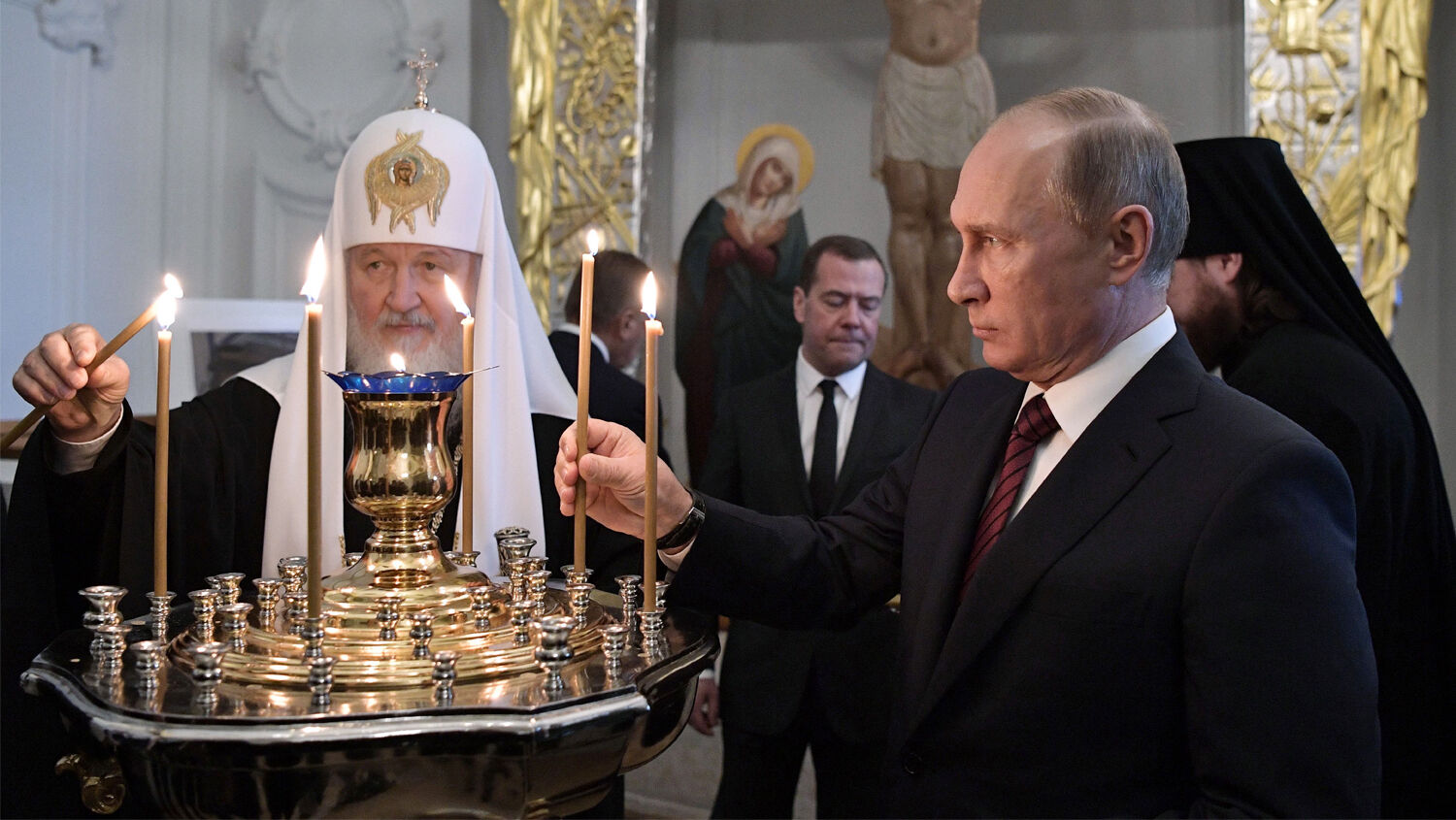
Putin Says Communist Ideas Come From the Bible—Is He Right?
Russian President Vladimir Putin said in a documentary broadcast on state-funded channel Rossiya 1 on January 14 that the Communist ideas of the Soviet Union come from the Bible.
He said:
Maybe I am about to say something that some people will not like, but I will say what I think. Firstly, faith has always accompanied us. It strengthened when things were hard for our people’s country. There have been harsh, God-fighting years when clerics were destroyed and churches were ruined. But at the same time, [the Soviets] created a new religion. Communist ideology is very akin to Christianity, actually.
Mr. Putin is not the first to make such a claim. Advocates of socialism and communism have often argued that certain passages of Scripture prove that the Bible supports state-enforced redistribution of wealth.
The most commonly cited passage is in the book of Acts. Acts 2:44-46 say of early Christians:
And all that believed were together, and had all things common; And sold their possessions and goods, and parted them to all men, as every man had need. And they, continuing daily with one accord in the temple, and breaking bread from house to house, did eat their meat with gladness and singleness of heart.
Acts 4:32-35 paint a similar picture of the Church, saying again that members had “all things common.”
But a look at the context shows that these passages do not advocate government-mandated redistribution of wealth like the model that Putin’s Soviet predecessors strove toward.
The preceding verses in Acts 1 and 2 show that many people had traveled to Jerusalem from various far-flung locations in the region. They had journeyed there to keep the annual Pentecost convocation. As Christ’s disciples assembled in the temple for the observance, the Holy Spirit came and filled them. Peter then delivered a Pentecost message, and some 3,000 people—including many of those visiting from outside of the city—were converted and baptized into the Christian faith. This marked the beginning of the New Testament Church.
These new converts were overjoyed to learn the truth of God, and many decided to stay in Jerusalem longer than originally planned to learn more from the apostles and other members. As a result, they ran out of funds and food, and were in need of help.
Herbert W. Armstrong, editor in chief of the Plain Truth magazine, explained in a 1949 article what the Church did to meet those needs: “Consequently, of necessity, they formed a sort of community for the time being only. And whenever some in poorer circumstances had need because of these unexpected conditions, others in better circumstances would from time to time sell part of their goods or land and share with the less fortunate” (January-February 1949).
It is clear that these early Christians were not practicing communism. They were responding to the needs of a temporary and extraordinary situation. And they were responding to those needs with voluntary generosity and compassion.
The Bible also shows that not all of the Church members sold their private property for this emergency. Only some of them chose to—and only on a voluntary basis. This is clear from a conversation Peter had with a member named Ananias who had sold some of his property. “The property was yours to sell or not sell, as you wished,” Peter said to him. “And after selling it, the money was also yours to give away” (Acts 5:4; New Living Translation).
It is clear that Ananias—like all of these individuals—privately owned his property and could do with it as he chose. “Here was private enterprise, and private initiative, and private ownership—not regimented communism,” Mr. Armstrong wrote (ibid).
After the new converts left Jerusalem to return to their homes, this temporary “all things common” situation ended. It is true that generosity, compassion and giving remained a central Church practice (e.g. Acts 11:27-30; 20:35; 2 Corinthians 9:6-7; Galatians 2:10; 1 Timothy 5). But such instances of giving were carried out by Church members only on a voluntary basis, and not at all in line with the Communist model of state-mandated redistribution of wealth.
A study into these and the rest of the scriptures shows that the Bible’s teachings are as far from Communist ideology as east is from west.
But it is easy enough to understand why Vladimir Putin would try to equate communism with Christianity. He is not particularly enthusiastic for either ideology, but he wants the Russian people to feel proud of their past. Above all, Putin is a nationalist. And he wants Russians to look back fondly on all facets of their national history, while holding the eagles and crosses of the czarist era in one hand and the Soviet hammers and sickles in the other.
As he continues on his quest to restore Russia’s superpower status, Putin relies on support from both Russia’s Orthodox Christians and its Soviet nostalgics. Where he can make the two comingle, a new kind of religion emerges: Putinism.
The Bible shows that the increasing power of the Putin “personality cult” is one of several trends leading to a great global conflict. To understand more, watch Trumpet editor in chief Gerald Flurry’s recent Key of David episode:
